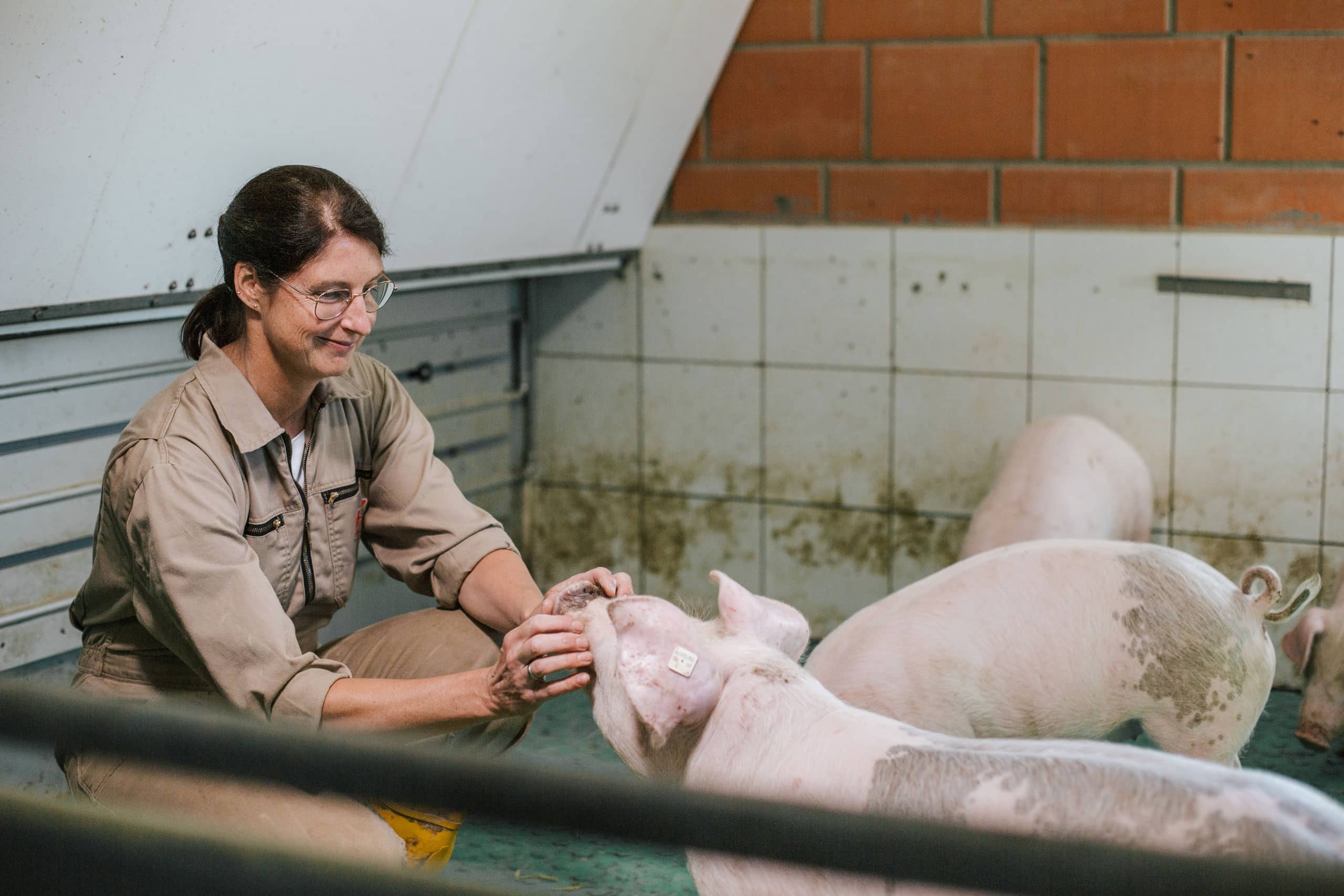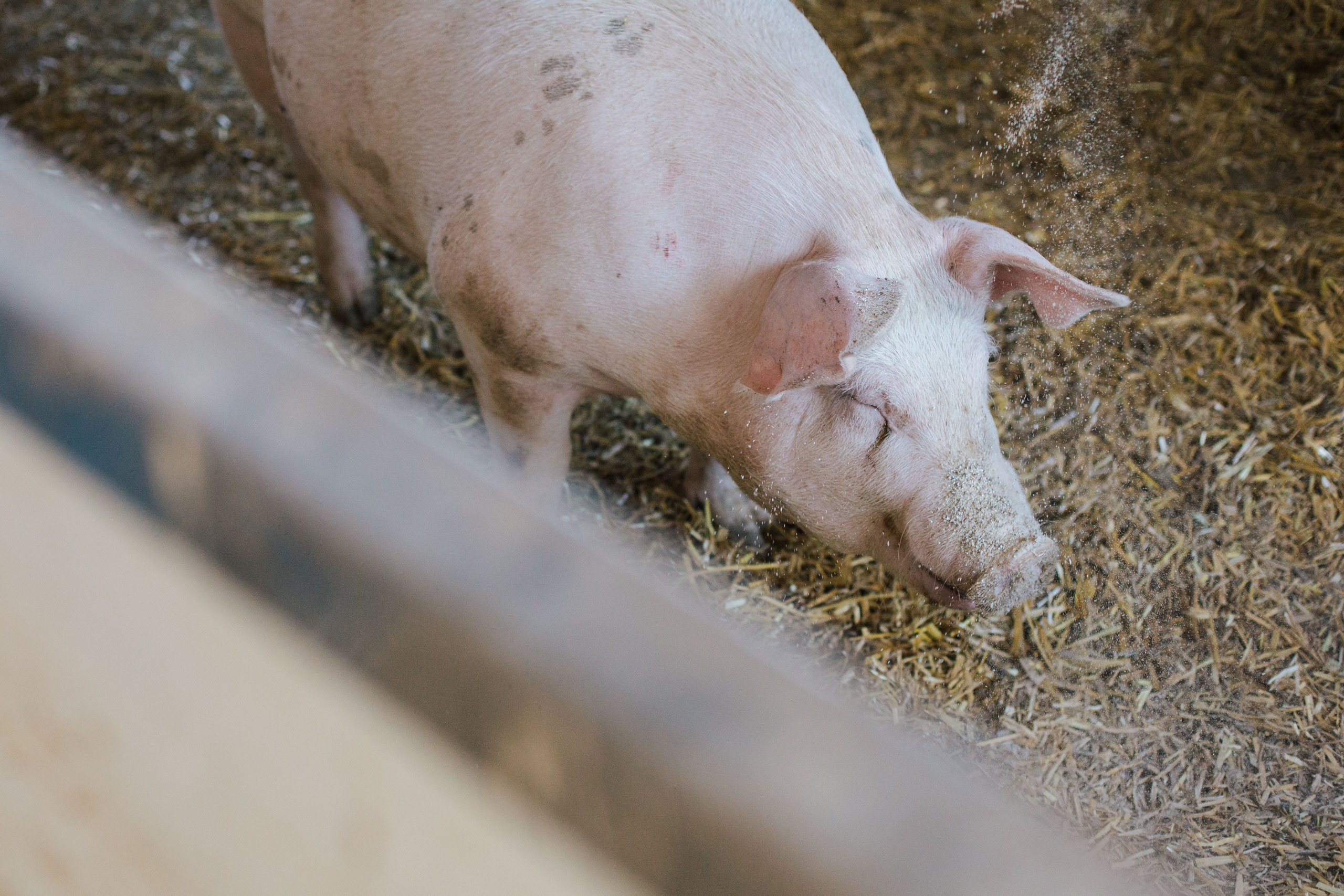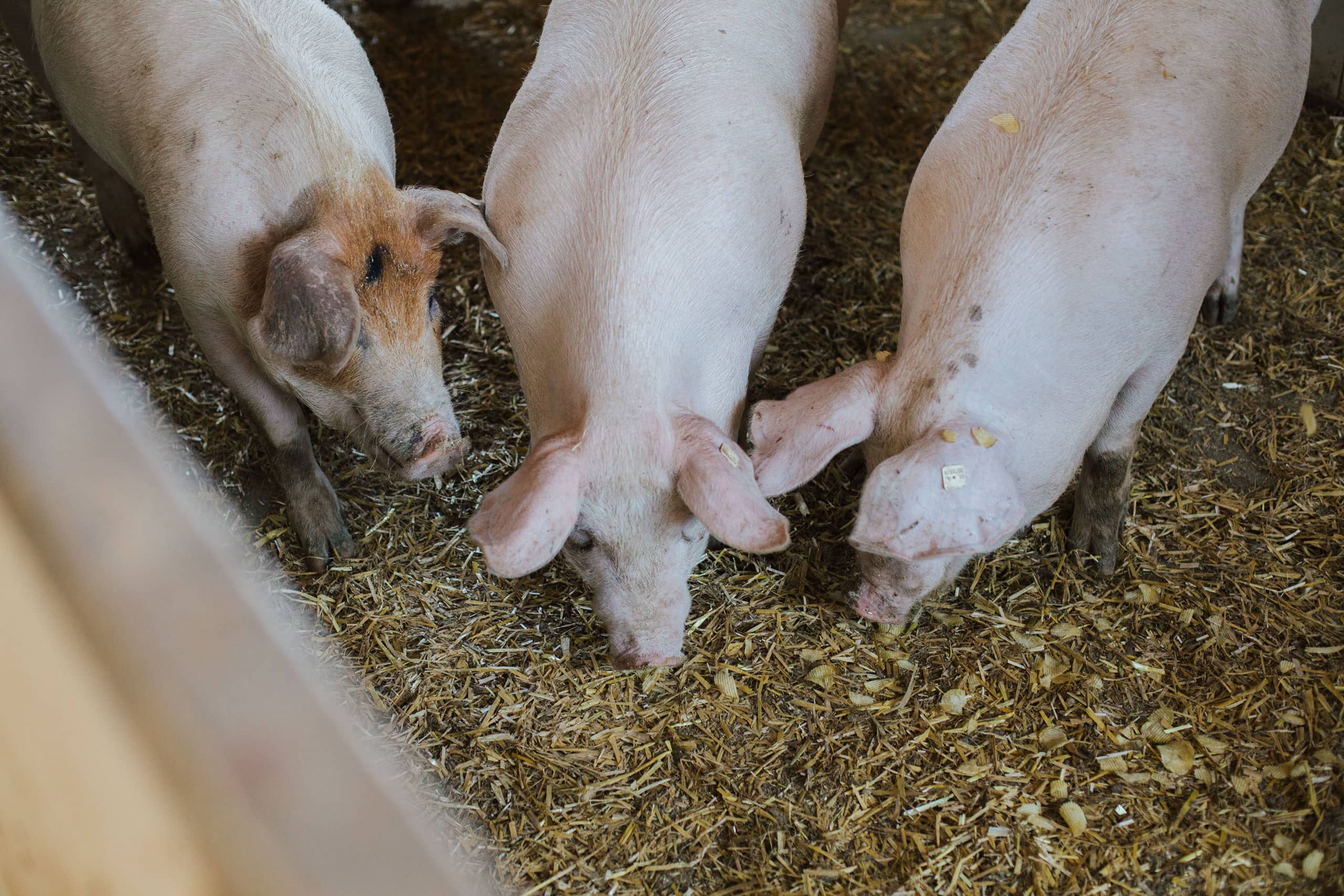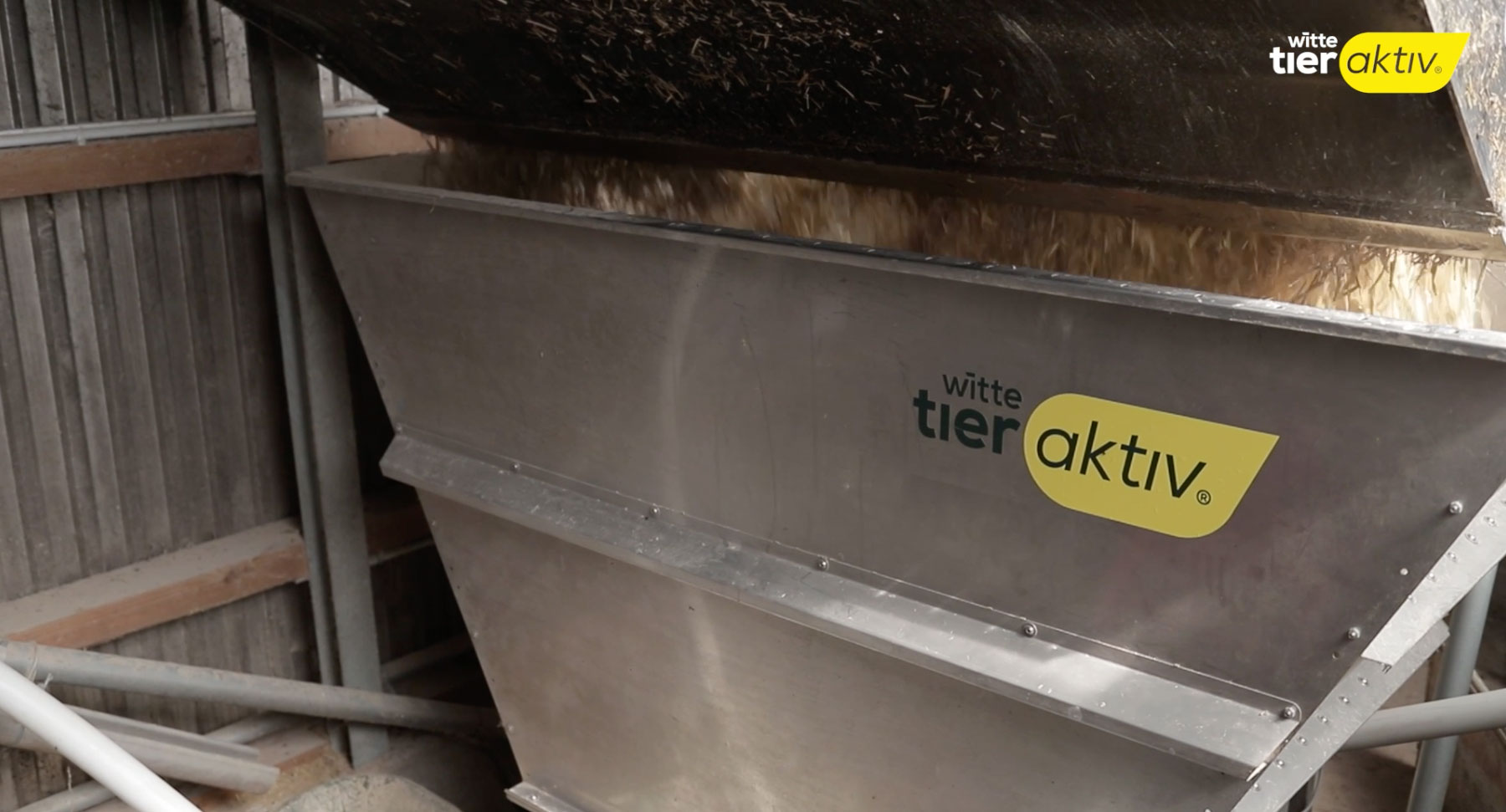More movement in the pigsty.
Kerstin and Torsten Deye run a pig fattening farm with more than 700 animals in Haschenbrok in the district of Oldenburg. Mother sows, piglets and fattening pigs of the „Haschenbroker Landschwein“ are kept on the farm. Every piglet born on the farm stays until it is ready for slaughter. Only gilts capable of mating are bought by the Deyes four times a year from a multiplier.
As early as 2019, Kerstin and Torsten Deye decided to change their pig husbandry for more animal welfare: On the one hand, to implement the requirements of the current Animal Welfare Ordinance on Livestock Husbandry, which stipulates, among other things, that the animals must be provided with sufficient roughage and manipulable materials, that they must be able to eat, chew, examine, move and work with, and on the other hand, to actively tackle the widespread problem of tail biting.

The conversion to roughage systems.
By converting to the tieraktiv chain feeding system, the animals on the Deye farm have since been supplied with manipulable materials and roughage.
The system not only makes it possible to bring straw into the stalls in a fully automated and uncomplicated way – other manipulable materials and roughage such as alfalfa pellets or maize silage can also be distributed at irregular intervals and thus surprisingly for the animals. „The reduction in workload on the farm is enormous. We feel that every day. Using the system is completely straightforward and cleaning is also done in no time at all,“ says Torsten Deye.


Animal welfare must be affordable and practicable.
Roughage in particular plays a decisive role in pig farming in terms of animal welfare: it stimulates digestion and ensures better intestinal flora. As bedding, the material ensures plenty of activity and movement. This in turn brings variety into the barn and has a calming effect on the animals – an important advantage also for the farmers: „Our animals are much more relaxed – a definite benefit when working with long tails. Because this has significantly reduced tail biting,“ says Torsten Deye.
Fact is: animals that feel comfortable are more productive and more robust with regard to diseases. The conversion of the farm to increase animal welfare and thus the implementation of the requirements of the current Farm Animal Husbandry Ordinance is also an economic factor – the investment in tieraktiv roughage feeding systems makes production in the stalls future-proof. Moreover, costs incurred can be compensated through subsidies from public funds.
